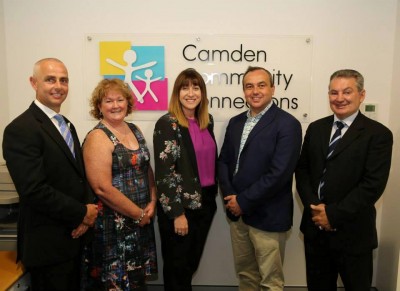The NSW Government’s decision to boost training on mental health for youth workers in regional and rural areas across the state is expected to improve the lives of thousands of young people across NSW, and likely prevent significant numbers of youth suicides.
State Mental Health Minister, Wollondilly MP Jai Rowell has announced on Tuesday (3 Feb.) that the state government would provide $250,000 to boost the expertise of youth workers across NSW in dealing with mental health issues among young people, in Camden.
The state government would also subside the education of youth workers currently working across regional, rural and remote NSW, so they can undergo the Youth Mental Health First Aid course. The course educates workers on identifying, triaging and referring mental health issues.
The training, to be coordinated through peak body Mental Health First Aid Australia, will provide youth workers, particularly those in rural and regional areas, with the skills and confidence to recognise signs and symptoms of common mental health problems in young people and respond effectively.
Mr Rowell said half of all mental illnesses manifested before the age of 14 and three quarters by the age of 25. ‘‘So it’s important that youth workers are equipped to recognise and respond to emerging mental health problems,” he said.
“Mental health problems can have a profound impact on the lives of young people, making it difficult for them to connect with family and friends, live healthy lives and reach their potential.”
 “Youth workers play a critical and pivotal role in helping children and young people make sense of the world around them.”
“Youth workers play a critical and pivotal role in helping children and young people make sense of the world around them.”
Camden MP Chris Patterson joined Mr Rowell for the announcement at local youth services provider, Camden Community Connections. Mr Patterson said the training would provide potentially life-saving skills to youth workers.
“Youth workers perform a vital role in helping our young people face up to all sorts of challenges, so it’s fantastic to see the NSW government now providing financial assistance to help them undertake mental health training too,” he said.
Govt’s funding to change lives – and save lives – in regional and rural areas
Youth Action, the peak body for youth affairs in NSW, has been campaigning for $250,000 in funding for this issue for over a year. Youth Action’s Managing Director, Katie Acheson, said the NSW Government’s response as extremely welcome. The announcement shows “the NSW Government has been listening carefully to the voice of youth in regional, rural, and remote areas,” Ms Acheson said.
“There is a genuine mental health crisis in regional NSW. Mental illness rates and suicide rates have stayed high over the past 30 years, especially for young men. In some very remote areas, youth suicide rates are six times higher than the state average. In many areas, youth workers are the only people rural young people feel comfortable talking to about their issues. We know that educating youth workers on how to recognise and respond to mental illness is a powerful weapon in the fight against youth suicide.”
Katie Acheson said it was an outstanding initiative which would ensure youth workers were equipped with the skills they needed to support young people facing mental health issues.
“The funding announced today will not only change young regional lives. In many cases it may well save them.”
Studies undertaken by the NSW Department of Health in 2007 showed youth workers who had undergone the Youth Mental Health First Aid course were far more likely to be able to correctly diagnose a case of schizophrenia or depression, and were more likely to help someone experiencing a mental breakdown or mental health ‘episode’.
Mental Health First Aid Australia is a not-for-profit organisation focused on mental health training and research which provides evidence-based courses which teach mental health first aid strategies to members of the public. The training will provide participants with skills in how to recognise the signs and symptoms of mental health problems, awareness of a range of treatments available and skills on how to respond to a comprehensive range of mental health crisis situations.




